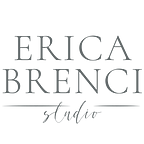“Collaboration etiquette in projects, personal or commissioned ones, how to approach them in both situation”
Collaboration: “the situation of two or more people working together to create or achieve the same thing” This is the definition of the Cambridge Dictionary. It seems to be very simple but in this definition there is the real concept behind every collaboration.
In personal project, or commissioned one, the collaboration is based on the activity of working, not playing, not joking but working. Working is he act behind the collaboration also in a personal or working project.
In a personal project the benefits to be achieved are in favor of the businesses of the entire team, while in a commissioned project the common benefit to be achieved is in favor of the client. In both cases, the goal must be shared.
In a commissioned work the purposes are often defined by the client and modulated by the supplier.
In a personal collaboration with other vendors, goals, roles and working methods are often unknown to the most.
Define a purpose
When you choose to collaborate with colleagues or suppliers in your market, it must be immediately clear which is the benefit for both and it must be established before starting. This helps to understand which project to develop, and which is better for a benefit or another one.
A purpose can be the reaching of a defined target market, or the increase of a network, or brand awareness, a sales campaign, or even the creation of a portfolio. In any case, must be a mutual and well-defined business benefit.
A goal of running a business could be often creating a portfolio, and the difficult is choosing the right collaborator: better they are for your purpose and better is the result.
The problem could be reaching vendors and collaborators that are out of your target and that you want to connect to.
Spend time to study them and find a purpose that you can share and you can be useful of.
Mutual sharing
Another key element for the success of a project is a mutual involving. In every phase of the project development, engagement is an element that must be always verified.
In case you collaborate in a project that is very important for you and less for the other, wait a moment and think about how strong is the mutual purpose.
Stronger is for both with a real benefit for all the business involved and stronger will be the connection and participation in the project.
In case of lacking of it you must understand the reasons and try to face them in order to find the solution.
The result could be the interruption of the collaboration or a postponement, but analyze it it’s important to avoid time wasting.
Roles and responsibilities
Another key element is to define the operational and economic roles of each one. Wherever it is a time investing, skills or materials, the roles of each collaborator must be very clear, defined in according to every competence and to the benefit to be achieved.
You can find someone that wants to share only materials, or money, or skills in your project but you can find also someone that decide to participate only been paid for the collaboration. In this case think about how strong is your purpose (in terms of benefit) and how much you can budget for the project.
In any case, free or paid collaborators must be defined very well and their responsibility too!
Organization
Scheduling and planning is another key element for every collaboration. Scheduling due dates and delivery times are a focus point.
It’s necessary to plan everything for each role and for every step of the project till the end of the project and over.
During the developing of the project, maintaining the scheduling is a big point for checking the mutual effort in every step. In any case examine every critical point from all the parties involved and discuss any solutions.
If they are paid collaborators check for every step if they respecting their dues times. If they are free collaborators check the reasons why they are not focused on the scheduling.
It could be for lack of interest for a lack of benefit, or simply a drawback occurring, in any case check and discuss with them any solution but be aware to don’t leave out any sincere comparison about the problems, because could be a waste of time, finances and efforts.
Evaluations and feedbacks
At the end of the project, after few days or later, another point of interest is to analyze the success or not, every critical point of the process, the feedback from the community or clients and every aspect that have been hard to resolve or could have been better in the process.
Feedbacks from other parties involved help to verify the real benefits and the real skills of the entire team.
Feedback from the clients and the community could help to verify the real ROI of the entire project.
Checking every step of the process and the critical points could be useful for future projects and are the real key elements for evolving in your business.
With this very analytical and not personal way of processing a project, every effort to achieve the purpose is maximized and there are very strong chance to have a successful and useful collaboration project.
If the collaboration team is not in the same target client, I think It’s not a big problem. The real problem is when the project speaks to different targets and with different values: the result doesn’t work.
Every project must have the most defined target clients and the more defined as possible Values to be communicated.
This kind of approach is the only way that let you reach your business goals quickly and with a right behavior.
